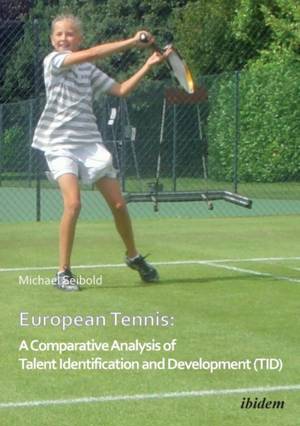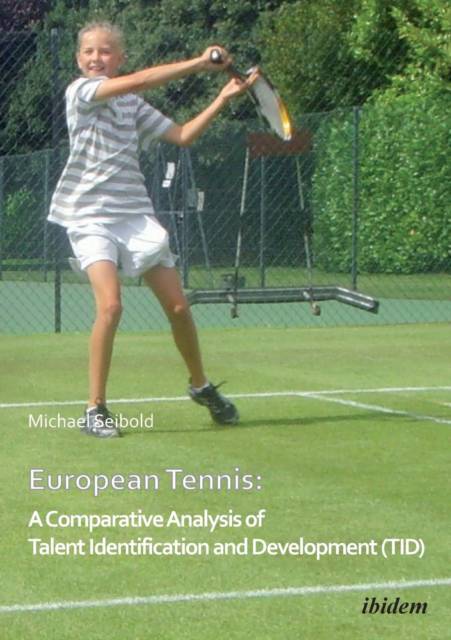
Door een staking bij bpost kan je online bestelling op dit moment iets langer onderweg zijn dan voorzien. Dringend iets nodig? Onze winkels ontvangen jou met open armen!
- Afhalen na 1 uur in een winkel met voorraad
- Gratis thuislevering in België vanaf € 30
- Ruim aanbod met 7 miljoen producten
Door een staking bij bpost kan je online bestelling op dit moment iets langer onderweg zijn dan voorzien. Dringend iets nodig? Onze winkels ontvangen jou met open armen!
- Afhalen na 1 uur in een winkel met voorraad
- Gratis thuislevering in België vanaf € 30
- Ruim aanbod met 7 miljoen producten
Zoeken
European Tennis: A Comparative Analysis of Talent Identification and Development (TID)
Michael Seibold
Paperback | Engels
€ 36,95
+ 73 punten
Omschrijving
In this wide-ranging book, Michael Seibold critically examines and assesses how Talent Identification and Development (TID) programmes for tennis are organised and implemented. He compares the views of key actors involved in TID practice: players, coaches, administrators, and parents in four selected European countries.
Seibold s study is based upon a multi-disciplinary and comparative research design, using both quantitative and qualitative research strategies. The results show large gaps between theory and practice of TID, indicating that tennis is likely to remain a socially exclusive sport and to become even more so within the next few years and will remain limited to children from families with above-average financial backgrounds. Michael Seibold suggests that environmental factors should form a part of every TID programme. Any TID must be looked upon as an ongoing longitudinal dynamical process. A centrally operating talent development commission, following clear published guidelines, is of crucial importance.
Seibold's book gives a real inside view into the TID programmes in tennis from the point of view of an expert who has been working many years as a national and international tennis coach and as sports expert as part of the International Olympic Committee s Olympic Solidarity Programme. It will help the reader to understand more about TID in tennis in general and support coaches, parents, players, and administrators in developing and optimising a programme to support and evolve their future talents.
Seibold s study is based upon a multi-disciplinary and comparative research design, using both quantitative and qualitative research strategies. The results show large gaps between theory and practice of TID, indicating that tennis is likely to remain a socially exclusive sport and to become even more so within the next few years and will remain limited to children from families with above-average financial backgrounds. Michael Seibold suggests that environmental factors should form a part of every TID programme. Any TID must be looked upon as an ongoing longitudinal dynamical process. A centrally operating talent development commission, following clear published guidelines, is of crucial importance.
Seibold's book gives a real inside view into the TID programmes in tennis from the point of view of an expert who has been working many years as a national and international tennis coach and as sports expert as part of the International Olympic Committee s Olympic Solidarity Programme. It will help the reader to understand more about TID in tennis in general and support coaches, parents, players, and administrators in developing and optimising a programme to support and evolve their future talents.
Specificaties
Betrokkenen
- Auteur(s):
- Uitgeverij:
Inhoud
- Aantal bladzijden:
- 296
- Taal:
- Engels
Eigenschappen
- Productcode (EAN):
- 9783838203300
- Verschijningsdatum:
- 1/12/2011
- Uitvoering:
- Paperback
- Afmetingen:
- 148 mm x 210 mm
- Gewicht:
- 384 g

Alleen bij Standaard Boekhandel
+ 73 punten op je klantenkaart van Standaard Boekhandel
Beoordelingen
We publiceren alleen reviews die voldoen aan de voorwaarden voor reviews. Bekijk onze voorwaarden voor reviews.











